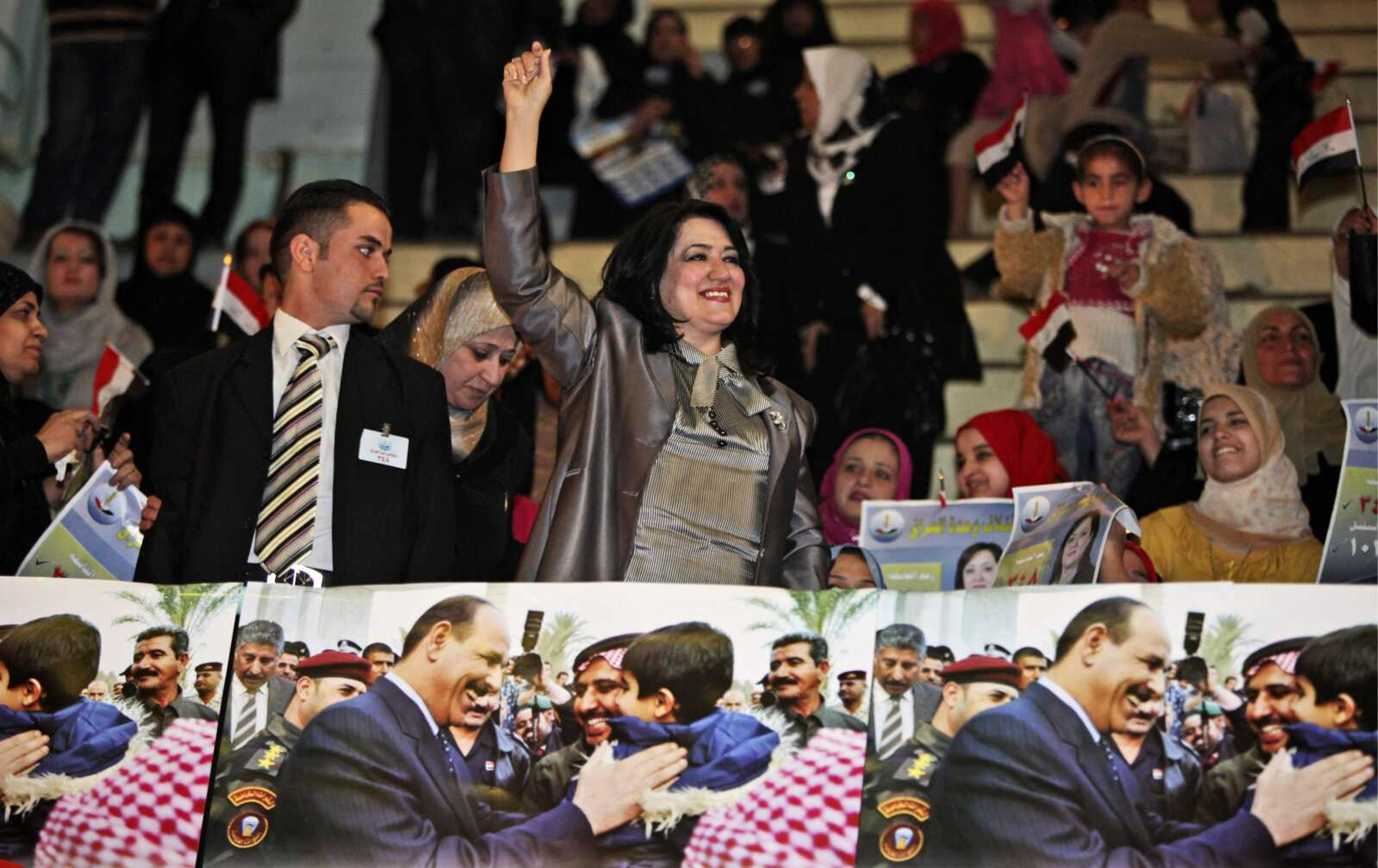Campaign styles reflect choices in Iraq parliament vote
BAGHDAD -- There were no politicians kissing babies at the campaign rally, but it came close. The band played, men danced and women swayed to the music as a speaker worked the crowd before the arrival of the main candidate -- former prime minister and secular Shiite Ayad Allawi, who made his way to the podium shaking hands and waving to well-wishers...
BAGHDAD -- There were no politicians kissing babies at the campaign rally, but it came close.
The band played, men danced and women swayed to the music as a speaker worked the crowd before the arrival of the main candidate -- former prime minister and secular Shiite Ayad Allawi, who made his way to the podium shaking hands and waving to well-wishers.
The scene may be common in the West, but it's a world apart from the more somber campaigning by Iraq's dominant religious parties. In many ways, the two styles point to the choice Iraqis have to make in Sunday's parliamentary election.
Early voting, which began Thursday, was marred by a series of attacks that killed at least 17 people and wounded dozens. The bombings, two of which occurred outside polling places, appeared aimed at discouraging voters, which included soldiers, police officers and others who might have difficulty getting to the polls Sunday.
Insurgents have vowed to disrupt the elections that will ultimately determine who runs the country when U.S. forces go home by the end of next year.
Voters basically have two choices: Will the country continue to grow more religiously conservative, as it has since Saddam Hussein's 2003 ouster, or will secular coalitions be able to win big enough to help steer Iraq away from a government that resembles Iran's hardline clerical regime.
Shiite parties have dominated the political landscape in Iraq and alienated the Sunni Arab minority since the fall of Saddam, who was a Sunni.
Allawi's bloc brings together a secular alliance of Sunni Arabs, Shiites and Kurds. It provides a stark contrast to the religious orientation of the two large, Shiite-led coalitions led by the Iranian-backed Supreme Islamic Iraqi Council, or SIIC, and Prime Minister Nouri al-Maliki's Dawa Party.
Like all other blocs in the running, Allawi's is not expected to win an outright majority in the 325-seat legislature, but it could do well enough to be courted by the winning bloc to join a coalition that will govern Iraq for the next four years.
Contrasting camps
The contrast between the two camps was clear Wednesday at an Allawi rally in Baghdad attended by nearly 1,000 supporters and another held three days earlier by the SIIC-led coalition, the Iraqi National Alliance.
At Allawi's rally, a band of drums and trumpets played, with one musician wrapped in Iraq's red, white and black national flag and a makeshift hat made of an Allawi campaign poster. A singer later took over and two dozen men, some in traditional Arab garb, did a "chope," a group dance in which men hold hands while performing in a line.
On Sunday in northern Baghdad, the Shiite Iraqi National Alliance held its rally. The crowd of about 200 was almost exclusively men, including dozens of tribal chiefs, and the atmosphere was subdued.
Scratchy recordings of patriotic songs played, and the half-dozen candidates seated on stage all wore business suits except one.
There was only scattered applause, mostly halfhearted or initiated by aides standing on either side of the podium.
The main speakers were senior SIIC leader Humam Hmoudi and Ahmad Chalabi, a one-time Pentagon favorite who heads a committee that has banned 440 candidates, the majority of them thought to be Sunnis, from running in the election because of alleged ties to the Saddam regime.
In a somber address, Hmoudi dwelled on a fatwa, or religious edict, issued last month by the country's top Shiite cleric urging Iraqis to turn out in large numbers to vote. It was one of many attempts by SIIC-led alliance to win votes by associating itself with Grand Ayatollah Ali al-Sistani, a deeply revered, Iranian-born cleric who has declared he will not endorse any campaigns.
"The marjayah," said Hmoudi, using the Arabic word for Shiite clerical leadership which is taken to mean al-Sistani, "has made us grow accustomed to its support in the interest of the nation."
Connect with the Southeast Missourian Newsroom:
For corrections to this story or other insights for the editor, click here. To submit a letter to the editor, click here. To learn about the Southeast Missourian’s AI Policy, click here.










